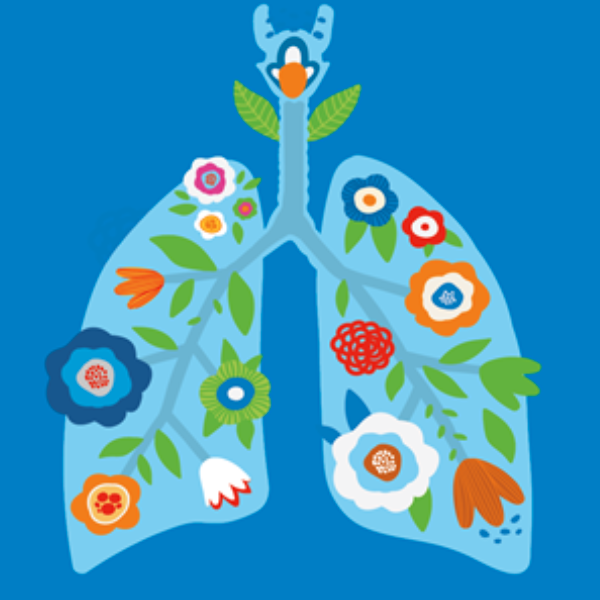Love your Lungs Week: 5 easy steps for cleaner air

Over the last year, our respiratory health has been pushed to the forefront of our consciousness. Asthma UK and British Lung Foundation have teamed up to remind us to continue to love our lungs even though our health priorities might be changing again.
On top of sanitising and social distancing, we have all become more aware of the importance of fresh air for good respiratory health and protection against illness. But, how fresh is the air we’re breathing?
To find out, it’s useful to know which pollutants in the air are most dangerous to us and our lungs. Particulate matter and nitrogen dioxide are the top pollutants found in the UK. Levels of these continuously change due to the number of cars on the road, the amount of energy we use and the weather.
Particulate matter is made up of toxic solids and liquids that are dangerous to us when they enter our lungs. The smaller particles (PM10 and PM2.5) are the most damaging. Nitrogen dioxide comes from vehicles, power stations and heating. When you breathe these in over a prolonged period it can become more difficult to breathe. The pollutants also irritate your nose and throat, causing pre-existing conditions like asthma and COPD to flare up.
Last year, the UK is rated 92nd out of 106 countries with the worst air quality. Although this rating isn’t all that bad, the air quality levels in the majority of regions in England exceed the WHO’s air quality guidelines. The World Health Organisation is currently updating these targets, however, they currently recommend that exposure to particle matter (PM2.5) in the air should not exceed 25 µg/m3 in 24-hours more than 3 times a year.
Over 35% of local authorities in the UK had unsafe levels of PM2.5 in the air when it was measured in 2018. This means 22 million people in the UK are at higher risk of getting a lung condition like asthma, COPD and even cancer or exacerbating their existing ones.
In 2013, a young girl from Lewisham called Ella Adoo-Kissi-Debrah died after experiencing coughing fits, severe asthma attacks and seizures. In 2020, after an inquest into her cause of death, coroner Philip Barlow concluded that: ‘Ella died of asthma, contributed to by exposure to excessive air pollution.’
This landmark case pushed the invisible health crisis onto the front pages and highlighted that some of the most disadvantaged communities are disproportionately affected by the dangers of air pollution. Pregnant women, children, older people, those on the lowest incomes and people with lung conditions are the groups hit hardest.
To ensure that these groups feel safe, everyone’s respiratory health is as good as it can be and people are protected against future pollution, we have to work together for better air quality in the UK. This Love Your Lungs Week, why not take these five steps for cleaner air:
Switch your car for cycling, walking or scooting: Electric scooters are popping up all over our cities, why not take one for a ride? The less we use our cars, the faster our traffic-concentrated routes can be cleaned up.
Use public transport more: As Covid restrictions have eased, more of us need to get around. The once ghost-town underground has quickly filled to the rafters again! As long as you’re masked up and can social distance safely, switch personal cars for public transport and beat pollution.
Buy electric: There’s no getting away from the fact that some people are reliant on their cars, and they shouldn’t have to apologise for that! Instead of choosing a petrol or diesel wagon, why not upgrade to electric?
Campaign for better walking and cycle paths: The pandemic caused a boom in pedestrianised areas for better social distancing. But, what’s going to happen once we have opened up? Ask your local authority and campaign for the protection of walking and cycle paths.
Teach yourself and your friends about pollution: Public awareness of the ins and outs of pollution is still low, even though everyone’s heard of it. The best way to beat a problem is to learn about it. Read up on pollutants and their dangers and spread the word by using these resources:
Information contained in this Articles page has been written by talkhealth based on available medical evidence. The content however should never be considered a substitute for medical advice. You should always seek medical advice before changing your treatment routine. talkhealth does not endorse any specific products, brands or treatments.
Information written by the talkhealth team
Last revised: 24 June 2021
Next review: 24 June 2024
